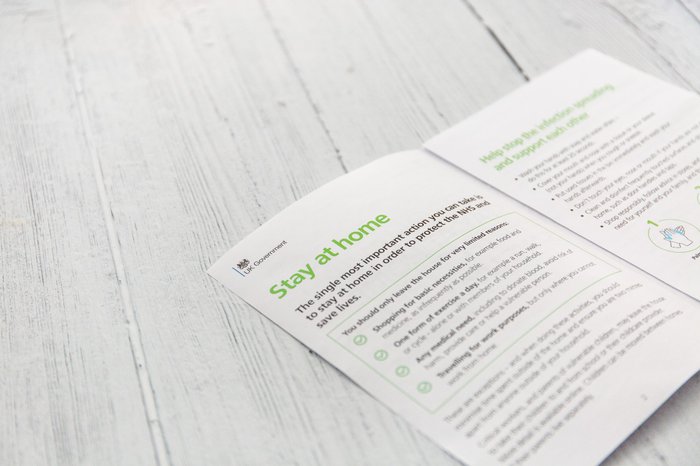Findings from our survey on COVID-19
United Kingdom
We surveyed more than 3,000 people affected by blood cancer to find out their concerns about coronavirus. Here's what we found out, and what we're going to do about it.

The current COVID-19 (Coronavirus) pandemic is a difficult time for people around the world. Worryingly, as people with blood cancer have compromised immune systems, they are at a higher risk of serious illness from the virus.
As the pandemic spread, there was a great deal of uncertainty. To make sure the blood cancer community were receiving the very best information and support, we carried out a survey of people affected by blood cancer to understand their questions, needs, and concerns on the virus.
Who responded?
More than 3,000 people completed our survey - both people with blood cancer and those supporting a loved one with the disease. When completing the survey, we asked people some details about themselves and their blood cancer. Together, this means we can look at the data in a number of ways. We can, for example, look to see if people with certain types of blood cancer are finding their treatment particularly disrupted, or if there are issues with NHS shielding letters in specific parts of the country.
What did they tell us?
A common theme throughout the results of the survey was uncertainty and fear. People were worried about a number of different things – from getting food delivered by supermarkets, to the capacity of the NHS to deal with the pandemic. But the survey also provided us with valuable insight into other topics, namely NHS shielding letters, and the impact the pandemic is having on people’s treatment and mental health.
Three things we learned
- We know that at least 115,000 people with blood cancer are at high-risk of serious illness from COVID-19. These people should have received a letter or text from the Government advising them to ‘shield’ themselves from others for a minimum of 12 weeks. However, we now know from our survey that this isn’t always happening, with many people still waiting to receive a letter many weeks on.
- As the pandemic spread, the NHS rightly reconfigured their services to deal with the virus. Unfortunately, our survey showed that increasing numbers of people are finding their blood cancer appointments and treatment altered or delayed.
- We know from our previous work and speaking to people affected by blood cancer that the disease can cause mental health challenges. Our survey showed us that the vast majority of respondents felt their emotional health had been impacted by the virus, and that carers felt supporting a loved one through the pandemic had caused them additional stress.
How have we used the results of the survey?
Your responses to our survey have told us the questions, needs, and concerns of the blood cancer community on COVID-19. By better understanding the situation we have been able to rapidly produce new information on the topic and provide additional support through our support line and online communities.
We also used our survey to make sure people affected by blood cancer are visible and represented through this difficult time. Through speaking to many of you further, we have raised the profile of blood cancer in the press (such as through demanding supermarkets make online deliveries available to vulnerable patients), helped NICE produce rapid clinical guidance on cancer treatments during the pandemic, and provided evidence to an ongoing Parliamentary inquiry. We also used the results of the survey to ensure clinicians, the NHS, Parliamentarians, and the Government understand the rapidly changing situation and the unique challenges facing people with blood cancer at this difficult time. Vitally, this allows Parliamentarians to press the Government on the behalf of people affect by blood cancer and means the NHS and clinicians are able to better respond to people’s needs.
What's next?
Although we are seeing the first signs that the UK is beginning to flatten its COVID-19 curve, we expect the pandemic will have a long-lasting impact on people with blood cancer.
Our survey remains open to monitor how the situation changes over time and to identify any new questions or concerns people might have to provide the most up to date information and best support for people.
A brief look at our survey data identifies a number of obvious COVID-19 challenges for blood cancer. We now begin the process of analysing the survey data. In the coming days we will begin to look at some of the issues raised by the survey in more detail.
